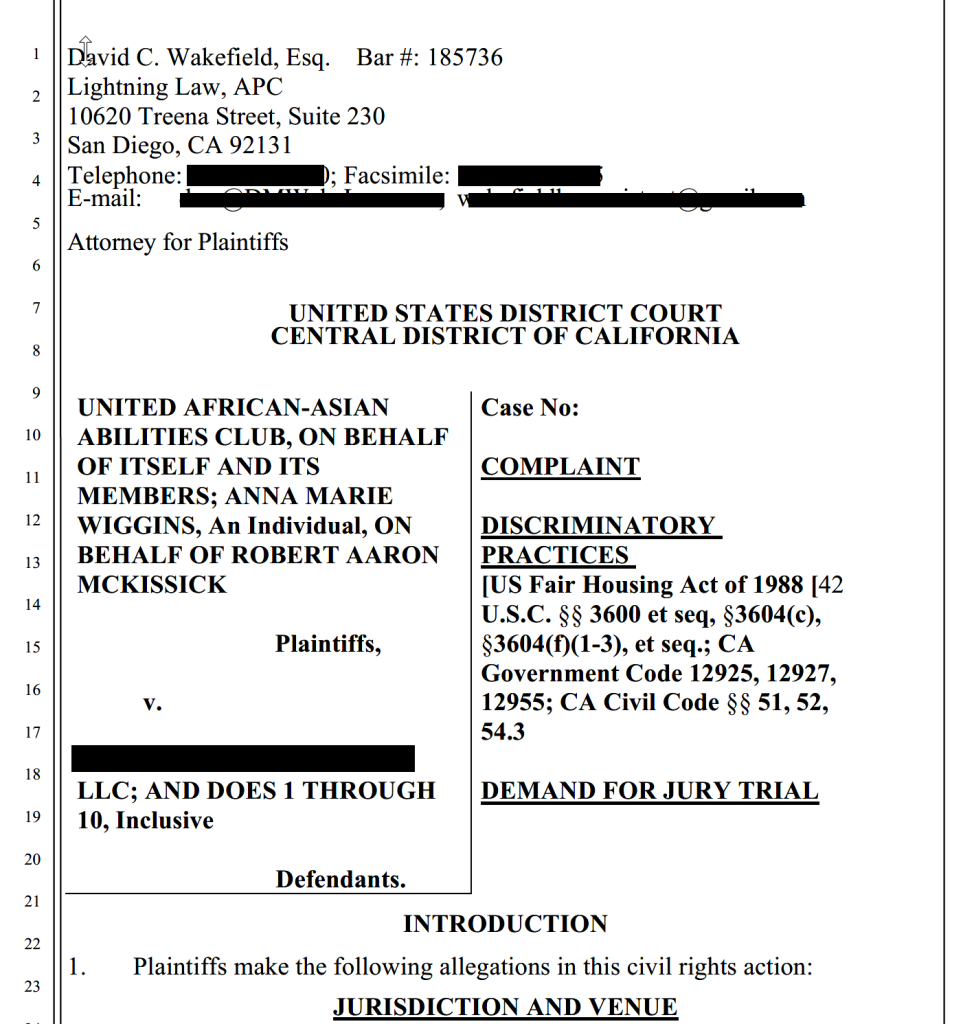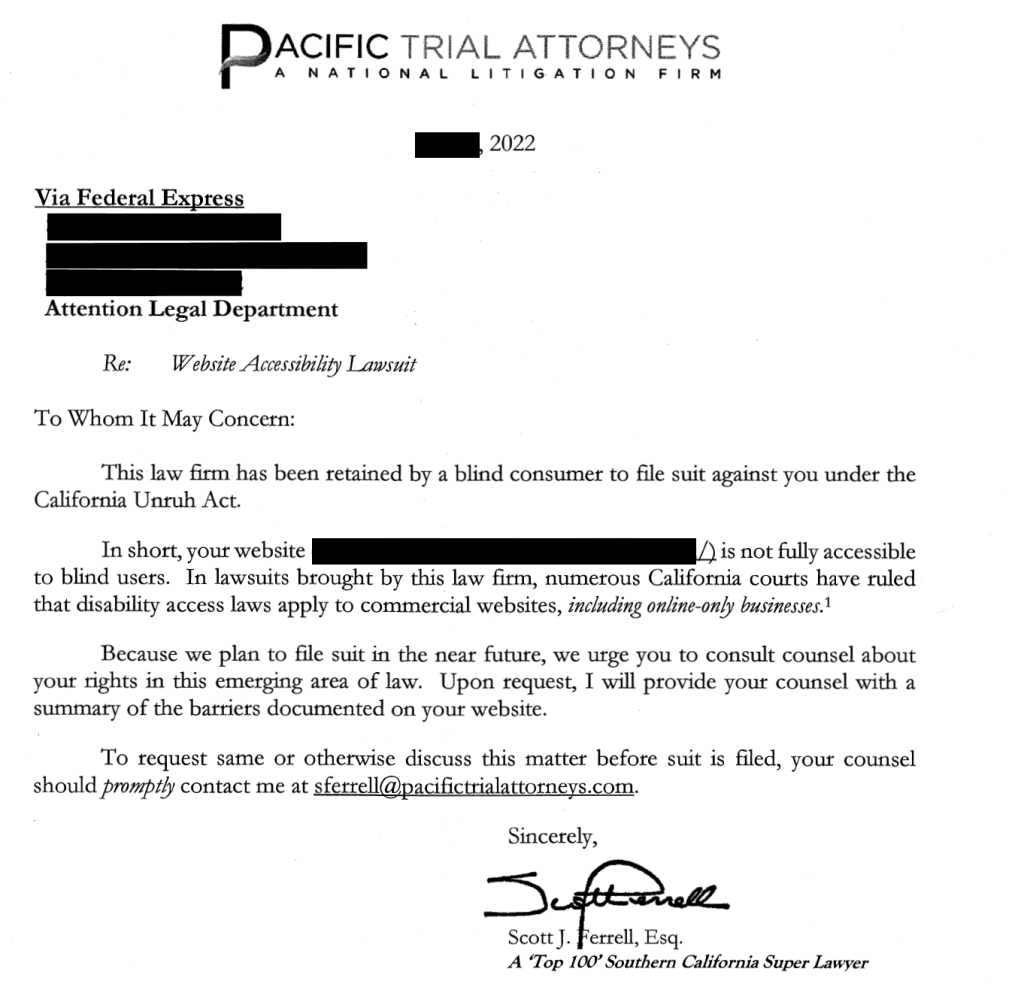
Title III of the Americans with Disabilities Act (ADA) regulates “places of public accommodation,” which covers nearly all businesses, commercial landlords, commercial tenants and their websites that are open to the public.
The basic rule is that “No individual shall be discriminated against on the basis of disability in the full and equal enjoyment of the goods, services, facilities, privileges, advantages, or accommodations of any place of public accommodation by any private entity who owns, leases (or leases to), or operates a place of public accommodation.” 28 CFR 36.201. The ADA applies to both the business itself and the landlord.
This requires that physical features of brick and mortar establishments meet certain standards. For example, accessible parking spaces must have a slope no greater than 2.1% with proper dimensions and signage. There is also a duty to provide “effective communication” under Title III of the ADA. This, at times, requires that American Sign Language (ASL) translators be provided free of charge and that websites be coded to allow blind users to use screen reading software on the website. Continue ›

 ADA Compliance and Defense Blog
ADA Compliance and Defense Blog




 The answer lies in the legislative design. The ADA was signed into law under the George H.W. Bush administration in 1990. It was designed to avoid further government bureaucracy by allowing aggrieved individuals to enforce the law by filing private lawsuits with the courts, rather than having a governmental agency enforce the law.
The answer lies in the legislative design. The ADA was signed into law under the George H.W. Bush administration in 1990. It was designed to avoid further government bureaucracy by allowing aggrieved individuals to enforce the law by filing private lawsuits with the courts, rather than having a governmental agency enforce the law.